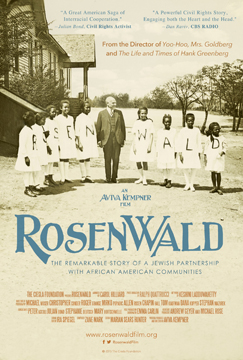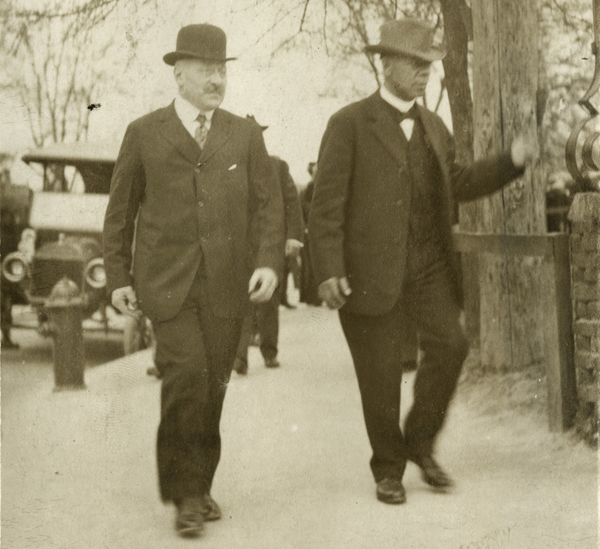
Review by John Delia
A two fold documentary called Rosenwald gets released this weekend telling two historical and enlightening stories of Americana. Connected by philanthropy and concern for the welfare of African Americans in the South following the Civil War, the film documents the life of Julius Rosenwald and his legacy that includes being instrumental in their education. Not preachy or over sentimental, the straight forward biographical presentation makes for intelligent understanding of the plight of both immigration and social development.
The film features the first half of the film telling the story about Julius Rosenwald. He was the son of a Jewish immigrant Samuel Rosenwald who came to America in 1854 about a year before the Civil War ended. Living on just $20 Samuel had with him, he looked for work as a peddler of goods. Working for a clothier and supplier Hammerslough Brothers he worked hard saving what he could to get along. From there after many years he was able to make good personal and financial decisions including marrying a daughter of a Hammerslough and building the business with success. In 1862 he and his wife gave birth to Julius who is the central person of the biographical documentary.

The film goes on to show how Julius was able to amass an amazing amount of wealth and popularity. It then leads into the next phase of Julius’s life where he helped to build African American schools all over the South. Director Aviva Kempner makes his film very interesting by showing photos, old film and interviews from grandchildren. It isn’t hard to become fascinated really quick with the amount of 1800’s to early 1900’s actual photographs of what things looked like during the eras. With the use of a Sear’s Roebuck catalogue the past comes alive showing the goods and services available to those who came before us.

But let’s not get sidetracked because the real story starts when Julius Rosenwald uses his wealth to bring positive change to the African Americans of the South that were denied a positive education. His goal was to build schools all over the south that would be used, built and run by African Americans. Initially supplying the funds to build several elementary schools, it finally turned into a percentage so it could become a community affair in each town. The split would be a third from the Rosenwald Fund, a Third from the White community and a Third to be raised by African Americans. It was his way of turning the project over to the people so they could propagate their own future. And what a future it became as you’ll see in the finale of this important documentary.
Rosenwald has not been rated by the MPAA, but does contain some photos and filmed scenes of violence and death.
FINAL ANALYSIS: An important historical and social documentary for all to see. (B)
Additional Film Information:
Directed and written by: Aviva Kempner
Genre: Documentary, Biography, History
MPAA Rating: Not rated, Contains some photos of violence and death
Running Time: 1 hr. 40 min.
Release Date: June 2, 2015
Distributed by: Ciesla Foundation
